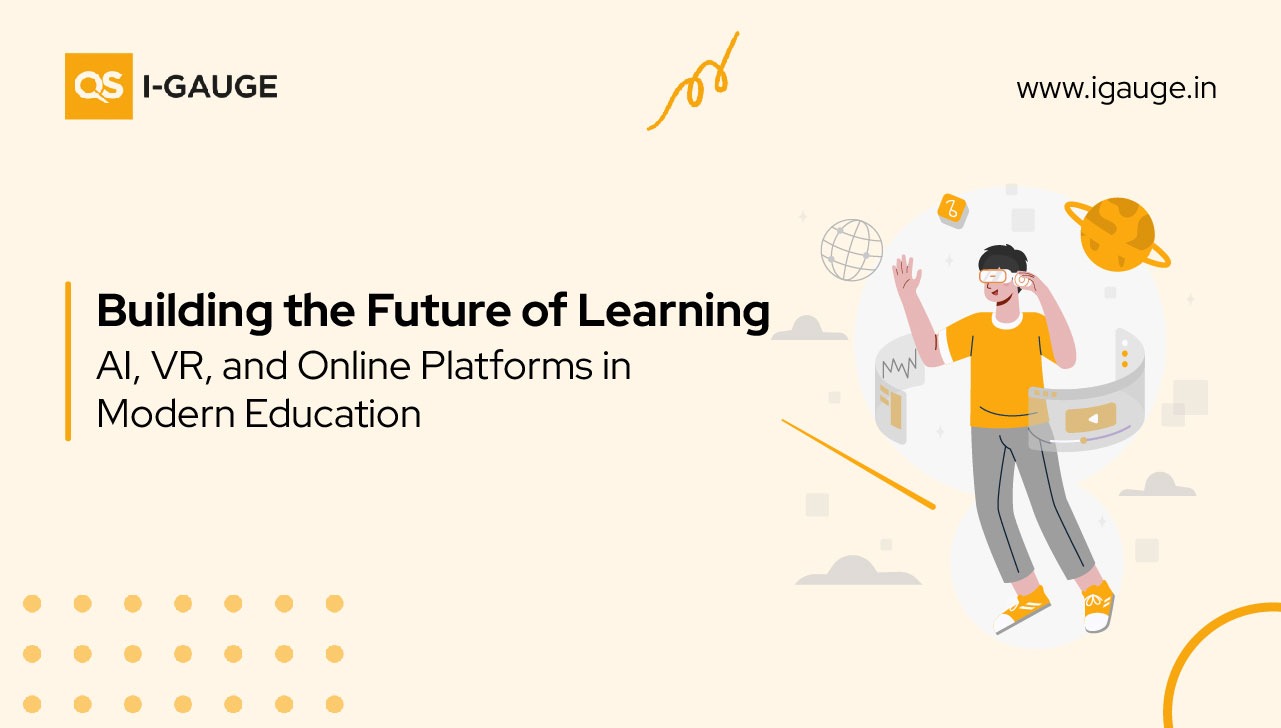
At the brink of a new decade, the realm of work is experiencing a rapid and unparalleled transformation. Technological progress, along with societal and environmental changes, is fundamentally altering the employment scene. Numerous career opportunities awaiting today's students in 2030 remain undefined at present. The evolution of technologies like drones, alternative energy sources, autonomous vehicles, and advancements in cryptocurrencies and blockchain is expected to give rise to many of these upcoming job prospects.
This blog aims to delve into the future, envisioning the potential shape of jobs in the year 2030.
The Ascendancy of Automation and Artificial Intelligence: The integration of automation and artificial intelligence (AI) has been steadily advancing across diverse sectors. By 2030, their influence is anticipated to significantly intensify. Mundane, repetitive tasks are progressively being delegated to machines and machine learning experts. Roles such as -
1. Augmented Reality journey builders
2. Metaverse planners
3. AI prompt engineers
4. Virtual collaboration platform builders
5. Autonomous car designers and mechanics
6. Smart home design managers with advanced degrees in AI, robotics, and architecture are anticipated to be in high demand.
Industries like manufacturing, transportation, and administration are witnessing a surge in automation, necessitating a reevaluation of the competencies essential for employment.
Tech-Savvy Roles: Deloitte's report projects an 11% surge in technology sector employment by 2028 - 2030, highlighting significant job expansion in software development, data analytics, and cybersecurity.Professions like
1. Data Science
2. Information security analysis
3. Cybersecurity
4. Drone traffic optimisation
5. Cloud computing
6. Ethical hacking
Jobs related to remote project management and digital communication will be essential as organisations strive to leverage data effectively while maintaining stringent privacy and ethical protocols.
Additionally, other roles in great demand would be full stack software developers, block chain developers, rocket design architects, spacecraft pilots, business intelligence analysts, quantum programmers, and many more.
Coming forth of New Industries: Despite the potential obsolescence of certain roles due to automation, it also heralds the rise of new industries and prospects. Sectors such as renewable energy, biotechnology, and virtual reality are projected to flourish in the upcoming decade.
One of the most recent reports by the International Renewable Energy Agency (IRENA) projects that the renewable energy industry could generate around 42 million job opportunities by 2050. Anticipated job growth focuses on the alternative energy sectors, especially in solar and wind power fields –
1. Solar energy technicians
2. Wind energy technicians
3. Renewable energy consultants
4. Bioenergy technicians
5. Energy auditors
6. Energy efficiency analysts
7. Energy storage technicians
8. Geothermal energy technicians
9. Renewable energy project managers
10. Electric vehicle technicians will be highly sought after.
Occupations associated with sustainability such as:
A. Environmental scientists and technologists
B. Climate change scientists
C. Renewable energy engineers and technologists
D. Hazardous waste engineers
E. Environmental health and safety specialists are poised to experience increased demand as societies place greater emphasis on environmental conservation and sustainable endeavours.
F. Also, Trash engineers or garbage designers with a background in science and industrial design to invent clever ways to dispose trash will be valued.
As technology continues to permeate various facets of society, the ethical dimensions of its utilisation will gain heightened significance. New roles will arise in fields such as ethics, responsible AI development, and corporate social responsibility to safeguard technological progress that aligns with societal norms and fosters beneficial social outcomes.
The burgeoning enthusiasm surrounding cryptocurrencies like *Bitcoin has opened up vast possibilities for investors within unregulated financial realms. Digital currency advisors with a background in accounting, financial management, and data security will be in demand.
Human-Centric Professions: Despite the increasing prevalence of automation, professions necessitating human qualities such as empathy, creativity, and intuition will endure. Industries like healthcare, education, and the arts will maintain their significance despite technological progress.
Healthcare professionals apart from physicians, surgeons, and registered nurses, including:
1. Medical assistants
2. Nursing practitioners
3. Home health aides
4. Physical, mental, and occupational therapists
5. Speech-language pathologists etc., shall be in great demand.
Educators including:
A. Bilingual education teachers
B. Edtech coordinators
C. E-Learning specialists
D. STEM education specialists
E. Instructional designers
F. Educational consultants will be required.
Artists across various streams will persist in their essential contributions to enhancing lives and fostering vibrant communities.
Global Collaboration and Diversity: The interconnected nature of the world will continue to foster collaboration across borders and cultures. Professions requiring cross-cultural communication such as interpreters and translators, international relations, and global supply chain management will experience increased demand.
Freelancing: The traditional concept of employment is undergoing a transformation, with an increasing number of individuals opting for freelance engagements and embracing the gig economy. The rise of technological platforms facilitating connections between freelancers and clients offers individuals a greater degree of flexibility and autonomy. It is anticipated that by 2030, a significant segment of the workforce will be engaged in freelance activities spanning various sectors, including graphic design and consulting.
In Essence - By 2030, the job landscape may have evolved significantly. To prepare for roles that might not even exist in 2024, focus on developing versatile skills and gaining a competitive advantage. Although roles such as lawyers, journalists, chefs, pilots, jobs in civil services etc., might continue to exist, it will surely be driven by technology. While the specific skills required are uncertain, cultivating agility in thinking, curiosity, creativity, adaptability, critical thinking, resilience, a collaborative mindset, empathy, openness to change, continuous upskilling, reskilling to remain pertinent, and displaying a growth mindset will be key to navigating the job market in the coming decade.
*Based on Government regulatory norms of every country.
Disclaimer:
The blog is curated by referring to various credible sources and does not necessarily reflect the opinions or positions of QS I-GAUGE. The information provided is for general informational purposes only, readers are advised to conduct their own research and seek professional advice before making any decisions.
References
https://www.eduopinions.com/blog/what-to-study/10-top-jobs-of-the-future-for-2030-and-beyond/
https://bravocareers.com/blog/85-of-jobs-haven-t-been-created-yet-what-could-yours-be




